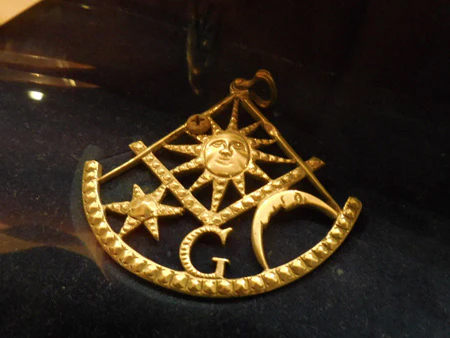
4 minute read
Robert Burns & His Masonic Poems
Brother Robert Burns is considered the national poet of Scotland. Born into a farming family and raised on a smallholding in 1759 in Alloway, he wrote lyrics and songs in Scots and in English. Th is upbringing earned him the name “Ploughman Poet” once he began to be recognized for his poetry. One of Robert Burns’s best-known poems is the mock-heroic “Tam o’ Shanter,” published in 1791. He is also well known for his contribution to over three hundred songs that celebrate love, friendship, work, and drink, often with hilarious and tender sympathy, such as “Auld Lang Syne.” Scattered among Burns’s poetry are several pieces which have a true Masonic ring and can only be properly understood and appreciated by Masons. Many references to Freemasonry occur in his other writings. Burns’s poems can be satirical but also full of sentiment; they deal with love and lust, human foibles and hypocrisies; they show a deep knowledge of and love of the natural world (especially horses, dogs, mice and lice); they can be funny and moving by turns. What makes them special is the way he writes about all of the above: his craftsmanship and use of language, his skill at rhyming, and his use of traditional forms in a new way.
He was an artist who absorbed everything and rewrote it. Essentially you feel this is a man who knows the truth about the human condition – whatever faults he may have had (and he admitted to plenty) just add to that knowledge. He is truly a poet who speaks to all, a poet for all seasons.
There are numerous Lodges internationally that recognize this esteemed Brother, including our own Robert Burns Lodge No. 97.
The Master’s Apron
There’s many a badge that’s very grand;
With ribbon, lace and tape on;
Let kings and princes wear them all
Give me the Master’s apron!
The honest craftsman’s apron,
The jolly Freemason’s apron,
Be he at hame, or roam afar,
Before his touch falls bolt and bar,
The gates of fortune fly ajar,
But wears the apron!
For wealth and honor, pride and power
Are crumbling stanes to base on;
Eternity should rule the hour,
And every worthy Mason
Each Free Accepted Mason,
Each Ancient Crafted Mason.
Then, Brethren, let a wholesome song
Arouse your friendly ranks along!
Goodwives and bairnies blithely sing
To the ancient badge with the apron string
That is worn by the Master Mason!
Farewell to the Brethren of St. James Lodge, Tarbolton
Adieu! a heart-warm fond adieu;
Dear brothers of the mystic tie!
Ye favoured, enlighten’d few,
Companions of my social joy;
Tho’ I to foreign lands must hie,
Pursuing Fortune’s slidd’ry ba’;
With melting heart, and brimful eye,
I’ll mind you still, tho’ far awa.
Oft have I met your social band,
And spent the cheerful, festive night;
Oft , honour’d with supreme command,
Presided o’er the sons of light:
And by that hieroglyphic bright,
Which none but Craftsmen ever saw
Strong Mem’ry on my heart shall write
Those happy scenes, when far awa.
May Freedom, Harmony, and Love,
Unite you in the grand Design,
Beneath th’ Omniscient Eye above,
The glorious Architect Divine,
That you may keep th’ unerring line,
Still rising by the plummet’s law,
Till Order bright completely shine,
Shall be my pray’r when far awa.
And you, farewell! whose merits claim
Justly that highest badge to wear:
Heav’n bless your honour’d noble name,
To Masonry and Scotia dear!
A last request permit me here,
When yearly ye assemble a’,
One round, I ask it with a tear,
To him, the Bard that’s far awa.
Dare to be honest and fear no labour.
— Taken from a Robert Burns letter to R. Graham of Fintry, dated December 9, 1789.









